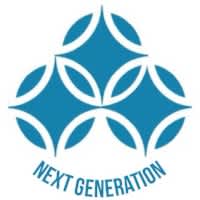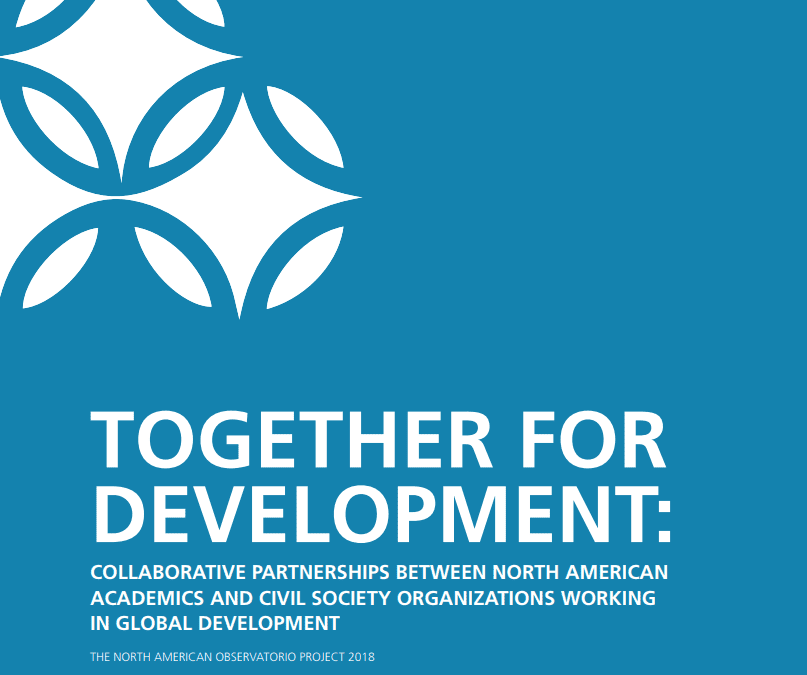If the countries and people of the world are going to meet the ambition of the Sustainable Development Goals (SDGs), we will need to meet SDG 17. This last (but not least) of the Goals emphasizes partnerships as an important means of achieving sustainable development. One crucial form of partnership is collaboration between development practitioners and academics – to ensure that development work is grounded in evidence, and that research is informed and guided by practice.
In the North American context, the Canadian Council for International Co-operation (CCIC) in partnership with the Canadian Association for the Study of International Development (CASID) recently released a report that identified and compiled the knowledge on collaborative partnerships in Canada and the US. These partnerships take a variety of forms, including collaborative research projects, practitioner placements in academic contexts, student internship programs, and input on training programs by civil society organizations (CSOs).
Specifically, we asked whether similar trends can be seen across North America, and whether differences between the institutional environments in Canada and the US affect the frequency and effectiveness of collaborative partnerships. The three key findings are instructive for how governments, CSOs, and academic institutions can enhance partnerships in the years to come.
1. Success depends on both internal and external factors. As demonstrated in previous studies, the success of these collaborations is determined in large part by the quality of the relationship between individual academic institutions and CSOs, which is in turn influenced by a variety of factors including the trust established through transparency and clear lines of communication.
The long-term research collaboration between Purdue University and Catholic Relief Services is an interesting example of an institutional partnership focused on mutual learning. This case and others also reveal the human factor – the importance of having people with a strong understanding of both research and practice alike, who can support and build innovative, sustainable, and meaningful partnerships.
However, larger structural factors also play a role in determining the frequency and effectiveness of collaborations. These factors include government priorities, the strategic orientation of funding agencies, the presence of organizations playing supportive roles, and broader academic and CSO cultures.
2. There is little direct government funding for academic-CSO development partnerships. With a few exceptions, including the Social Sciences and Humanities Research Council of Canada’s (SSHRC) Connection, Engage and Partnership programs, large federal funding agencies in North America (and particularly the United States) have not prioritized collaborations between academic and non-profit organizations. With few resources available, the logistical and coordination challenges of scaled partnerships may be intimidating for many CSOs and academic institutions.
By contrast, the British Economic and Social Research Council (ESRC-UK)has taken a much more proactive approach to facilitating collaboration – offering resources to help researchers identify what impact is and how to achieve it, encouraging research produced with rather than on people, and urging researchers to embrace sharing information rather than merely disseminating results (the latter often in inaccessible ways). Similar initiatives in Canada and North America could substantially strengthen the number and quality of researcher-practitioner partnerships at national and regional levels.
Targeting non-academic and CSO partners as co-investigators in grant programs would help support collaborative work along with creating new funding windows for applied research focusing on societal impact.
3. National platforms and networks have an important role to play. Like CCIC and CASID in Canada, InterAction and the Society for International Development (SID) are coalitions of members committed to end poverty in the US. They act as conveners, advocates and leaders in the global development sector at the national level. These networking and capacity-building organizations could play a powerful role as bridging bodies, capable of facilitating academic-CSO partnerships and liaisons between other entities.
As a starting point, they could use their memberships to run pilot programs to enhance collaborations between CSO members and academic research partners, such as secondments, placements, research partnerships, etc. As umbrella organizations with access to many CSOs, they could map existing partnership agreements between CSO members and academic institutions to learn more about how they evolved, the benefits of the relationship, and what outcomes and impacts have been identified to date.
Partnership is easier said than done – but the ambition of the SDGs, and indeed of Canada’s own Feminist International Assistance Policy, demands nothing less. The lessons taken from this study can help build a more enabling environment for successful development partnerships between academic researchers and civil society practitioners, through the joint contributions of government, national platforms and networks, and the partners themselves.
Emily McGiffin is a postdoctoral fellow at York University’s Faculty of Environmental Studies. She is also a research assistant on the Next Generation program.
Andréanne Martel is the Program Officer of the Next Generation program, a research partnership between the Canadian Council for International Co-operation (CCIC) in Ottawa and the Canadian Association for the Study of International Development (CASID).
Gavin Charles is the Policy Officer at the Canadian Council for International Co-operation (CCIC).






